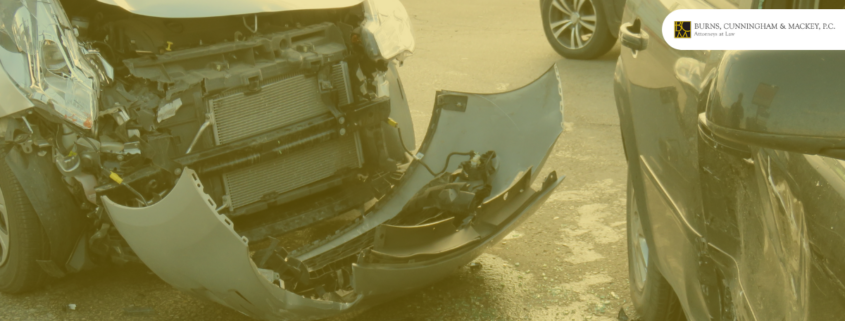Ways to Maximize Your Car Accident Settlement in Alabama
A car accident can turn your life upside down in an instant. The physical pain, emotional trauma, and financial stress can be overwhelming. If you’ve been injured in a car accident in Alabama, you’re likely facing a challenging road ahead – dealing with medical treatments, lost wages, and the daunting task of seeking fair compensation for your injuries and losses.
Navigating the aftermath of a car accident in Alabama isn’t easy. Insurance companies often prioritize their profits over your well-being, and the legal system can be complex and intimidating. For this reason, it is always recommended that you work with a seasoned attorney in order to secure the full and fair compensation you deserve.
Understanding Alabama Car Accident Laws
It’s essential to understand the key legal principles that will affect your case:
- Statute of Limitations: In Alabama, you generally have two years from the date of the accident to file a personal injury lawsuit. If you miss this deadline, you may lose your right to seek compensation through the court system.
- Contributory Negligence Rule: Alabama follows a strict contributory negligence doctrine. If you’re found to be even slightly at fault for the accident, you could be barred from recovering any damages. This makes it critical to establish the other party’s complete fault.
- Minimum Insurance Requirements: Alabama law requires drivers to carry at least $25,000 per person and $50,000 per accident in bodily injury liability coverage, along with $25,000 in property damage liability. Understanding these minimums is important when dealing with insurance companies.
These laws form the foundation of every car accident claim in Alabama, influencing everything from negotiation strategies to the potential value of your case.
Immediate Steps to Take After an Accident
The actions you take immediately following a car accident can significantly impact your ability to receive fair compensation. Here’s what you should do:
- Ensure Safety and Seek Medical Attention: Your health is the top priority. Even if you feel fine, get checked out by a medical professional. Some injuries may not be immediately apparent.
- Document the Accident Scene: If possible, take photos of vehicle damage, road conditions, and any visible injuries. This evidence can be crucial when proving fault.
- Collect Witness Information: Get the names and contact details of anyone who witnessed the accident. Their accounts can corroborate your version of events.
- File a Police Report: In Alabama, you’re required to report accidents resulting in injury, death, or property damage exceeding $250. This official document serves as important evidence.
- Notify Your Insurance Company: Report the accident promptly, but stick to the facts. Avoid admitting fault or making recorded statements without legal advice.
These initial steps provide a foundation for your claim and help protect your rights.
Gathering and Preserving Evidence
Strong evidence is vital for maximizing your car accident settlement. Here’s what you should collect and preserve:
- Medical Records and Treatment: Document every doctor’s visit, prescription, and therapy session related to your accident injuries. These records prove the extent of your injuries and the treatment required.
- Injury and Recovery Documentation: Keep a daily journal detailing your pain levels, limitations, and how the injuries affect your daily life. This personal account can help illustrate non-economic damages like pain and suffering.
- Accident-Related Expenses: Save every receipt, from medical bills to car rental costs. These will help calculate your economic damages accurately.
- Police Report: Obtain a copy of the official accident report. This document often contains crucial details about the crash, including the officer’s assessment of fault.
- Physical Evidence: If possible, preserve any damaged personal items or vehicle parts. These can serve as tangible evidence of the crash’s severity.
Thorough documentation strengthens your case and makes it more difficult for insurance companies to dispute your claim.
Calculating the Full Extent of Damages
To maximize your settlement, it’s important to understand and account for all potential damages:
- Medical Expenses: Include current bills and estimated future medical costs related to your injuries.
- Lost Wages and Earning Capacity: Calculate not just the work you’ve missed, but also any reduction in your future earning ability due to your injuries.
- Property Damage: This covers the cost to repair or replace your vehicle and any other damaged personal property.
- Pain and Suffering: While harder to quantify, this covers physical pain and emotional distress caused by the accident.
- Emotional Distress: Accidents can leave lasting psychological impacts, which may be compensable.
- Punitive Damages: In cases of extreme negligence or intentional misconduct, Alabama law allows for punitive damages to punish the at-fault party.
Insurance companies often focus on tangible economic damages. It’s important to ensure that all aspects of your suffering are accounted for in your claim.
Negotiation Strategies with Insurance Companies
Dealing with insurance adjusters can be challenging. They’re trained to minimize payouts, but with the right approach, you can advocate for fair compensation:
- Understand Adjuster Tactics: Be aware that their initial offer is often low. They may also use delay tactics or try to shift blame.
- Avoid Common Pitfalls: Don’t give recorded statements without legal advice, and never accept the first offer without careful consideration.
- Present a Strong Case: Use your gathered evidence to clearly demonstrate the accident’s impact on your life.
- Know Your Claim’s Value: Have a clear understanding of your claim’s worth before entering negotiations. This provides a baseline for discussions.
- Be Patient: Rushing to settle can result in inadequate compensation. Be prepared for a potentially lengthy process.
Remember, you’re not obligated to accept any offer that doesn’t fully compensate you for your losses. If negotiations stall, it may be time to consider legal action.
The Role of Legal Representation
While it’s possible to handle a car accident claim on your own, an experienced Alabama car accident attorney can significantly increase your chances of maximizing your settlement. Here’s how:
- Case Strength: Attorneys know how to build a robust case, gathering evidence and expert testimonies that you might not have access to.
- Legal Procedures: From filing deadlines to court protocols, a lawyer ensures you don’t miss crucial legal steps.
- Negotiation Expertise: Experienced attorneys understand insurance company tactics and how to counter them effectively.
- Court Representation: If your case goes to trial, having a skilled litigator can make a substantial difference in the outcome.
An attorney acts as your advocate, fighting for your rights and ensuring you’re not taken advantage of in the complex world of personal injury law.
Avoiding Common Mistakes That Can Reduce Your Settlement
Knowing what not to do is just as important as knowing what to do. Here are some pitfalls to avoid:
- Admitting Fault or Apologizing: Even if you think you might be partially at fault, avoid apologizing or admitting fault at the scene or to insurance adjusters.
- Providing Recorded Statements: Insurance adjusters may pressure you for a recorded statement. Politely decline until you’ve spoken with an attorney.
- Accepting Early Settlement Offers: Initial offers are often low. Don’t accept any offer without fully understanding the extent of your damages.
- Neglecting Medical Care: Failing to seek prompt medical attention or follow through with treatment can weaken your claim.
- Oversharing on Social Media: Posts about your accident or activities can be used to dispute your injuries. Limit your social media use during your claim process.
By avoiding these common errors, you protect the integrity of your claim and maintain leverage in negotiations.






Leave a Reply
Want to join the discussion?Feel free to contribute!